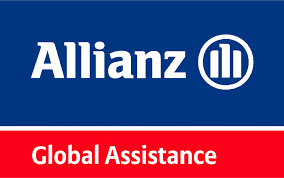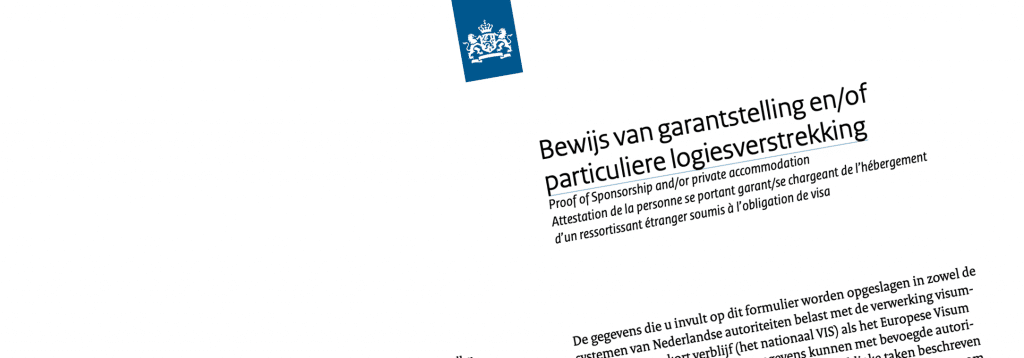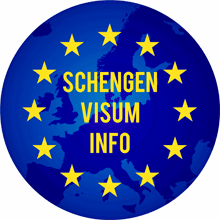Guarantee for a Schengen visa
Sometimes the government has to incur costs for the stay and departure of a foreign national. With a guarantee, a person in the Netherlands becomes responsible for these costs. This person must complete the form 'proof of sponsorship and/or private accommodationfill in and sign. He must then have the signature on the form legalized at the municipality.
You can provide a financial guarantor (guarantee) for someone who comes to the Netherlands for a short stay (maximum 90 days). A guarantee is required if the foreign visitor has insufficient income.
When is a guarantee required?
Your visitor must be able to demonstrate that he has at least 55 euros to spend per day (per person), for all days he stays in the Netherlands. If he or she is unable to do so, you can act as guarantor for the person from abroad. You must be able to demonstrate that you have sufficient income yourself.
Private accommodation
Does your guest have enough money during their stay? Then a guarantee is not necessary. In that case, you only request private accommodation via the proof of guarantee and/or private accommodation form.
Conditions for guarantee
Your income is at least equal to the minimum wage (excluding holiday pay).
Couples have a joint income of at least the minimum wage (excluding holiday pay). You must fill in a proof of guarantee and/or private accommodation.
What do you have to do to guarantee?
- First of all, you fill in the proof of guarantee and/or private accommodation form. If you want to act as guarantor for several people, you must also fill in the form several times. This is possible online at various municipalities.
- Have your signature on the form legalized at your municipality. The warranty is valid for 3 months.
- Collect the additional documents that prove your income (see the paragraph below).
- Send this together with the form to your visitor abroad. After receipt, your visitor can apply for a visa at the Dutch embassy (or consulate) abroad. The Visa Applicant must take a copy of the document with him when he/she travels to the Netherlands. The Royal Netherlands Marechaussee can ask for the documents during border control.
Additional documents guarantee
In addition to the form, you must also collect the following documents. You send this to the foreign visitor.
You are a guarantor and are employed:
- A copy of your employment contract (this must continue for at least 12 months from the time of the visa application.
- A copy of your last 3 pay slips.
You guarantee and are an entrepreneur:
- A recent extract from your registration with the Chamber of Commerce.
- Your most recent final income tax assessment.
- A recent profit and loss statement, showing your net profit.
The guarantee form
You need the form 'Proof of guarantee and/or 'private accommodation' to invite people who are required to have a visa before coming to the Netherlands and to whom you wish to provide accommodation. You also need the form if you want to act as a guarantor for a foreign national who is subject to a visa requirement. Clearly indicate on the form under 3 'Declaration' what applies in your case: guarantee, accommodation or both.
Have your signature legalized at the municipality
The form you have completed must be presented to the municipality for legalization of your signature.
NB! In case of a guarantee, the signature of your partner must also be legalized at the municipality.
The data you enter on the form is stored in both the systems of the Dutch authorities responsible for processing short-stay visa applications (the national VIS) and the European Visa Information System (VIS). This data can be shared with the competent authorities in order to optimally facilitate the performance of the public tasks described in the Aliens Act 2000 in the area of inflow, throughflow and outflow.
What does a guarantor sign for?
The guarantor guarantees the payment of the costs of the stay, medical care and repatriation caused by the person visiting the Netherlands. This applies for a period of 5 years or as much shorter as the foreign national's stay lasts, counting from the entry of that person into the Schengen territory, up to a maximum of € 10.000 per year, insofar as these costs would otherwise be borne by the the State and/or public bodies. The guarantee ends when it can be adequately demonstrated that the person has left the Schengen area with a Schengen visa (such as an exit stamp affixed by a Schengen state or an entry stamp affixed by an authority responsible for border control in the country of origin).
Because as a guarantor you stand for € 10.000, it is important that you take out good medical travel insurance, whereby the guarantor is the policyholder and the foreign guest is the insured. This way you protect yourself as a guarantor.
Frequently asked questions and answers about the guarantee
With a guarantee you stand surety for the foreign guest. You are a financial guarantee for the costs that the Dutch state has to incur for the foreign national, should something go wrong. You sign that you guarantee the payment of the costs of the stay, medical care and repatriation of your foreign guest. The most important risk you run with a guarantee is therefore a financial risk.
Do you guarantee your foreign guest or partner? Then take out the medical travel insurance yourself and send the policy to the visa applicant by e-mail. The travel insurance is also for your financial protection. After all, you are financially responsible for any medical costs and these can be substantial. If you take out a policy, we advise you to ensure that you are the policyholder (premium payer) and your guest is the insured. The advantage of this is that any damage payment will also be transferred to you and not to your guest's bank account. Also take out Schengen insurance with a Dutch insurer. With a Dutch travel insurer you are subject to Dutch law. Dutch insurers are subject to strict supervision and are usually more reliable than foreign insurers.
Usually that is not necessary. If you have an AVP (liability insurance for private individuals), guests are also insured, insofar as their liability is not covered by another insurance policy. If necessary, inquire with your AVP insurer.
Legalization of a signature means that an official on behalf of the mayor declares that your signature on a certain document is 'genuine'. He or she compares it with the signature on your ID. With the signature you will receive a stamp with date. By legalization, the municipality declares that a signature has been placed on a document by the person who had to sign the document. Legalization of the signature says nothing about the correctness of the contents of the document; only about the authenticity of the signature.
There are fees (costs) associated with the legalization of your signature by the municipality, which differ per municipality, which vary between € 9 and € 20. Check the website of your municipality for the exact amount.
The period of validity of the legalization of a 'Proof of guarantee/accommodation' is not laid down by law, but 3 months is often used. However, not all embassies and consulates use the same period of validity. Therefore, always ask the relevant Dutch representation for the most up-to-date information.
Yes, this is possible. You do have to fill in a separate 'Proof of guarantee and/or accommodation' form for each person. You must also have your signature legalized for each form.
This is only necessary if it concerns a guarantee and only if you are married or have a registered partnership.
Yes, that's possible. Both persons must complete the Proof of guarantee and/or private accommodation form. Both must also have their signature legalized at the municipality.
To be able to provide a financial guarantee, you must have a sustainable and sufficient income to have. This means at least 100% minimum wage gross income excluding holiday pay. On January 1, 2023, this amount was €1.934,40 per month (without holiday pay). This standard amount is updated once every six months. With this income you can act as guarantor for one or more persons, the income requirement remains unchanged.
The guarantee ends as soon as the foreign national has demonstrably left the Schengen area. A new guarantee is therefore officially required for a new visit to the Netherlands. As long as a foreign national still resides within the Schengen area, a Dutch guarantor can be held responsible for any costs for another 5 years.


Medical travel insurance Schengen visa
Take out Allianz Travel Risk Insurance for your foreign guest now!
√ Meets all requirements for a Schengen visa.
√ Medical costs covered up to € 30.000. Repatriation: all necessary costs.
√ You can change the policy in the meantime free of charge.
√ VISA GUARANTEE: You don't pay anything if your visa is rejected.
√ The certainty of the largest travel insurer in the world: Allianz Global Assistance.
Premium from € 2 per day






